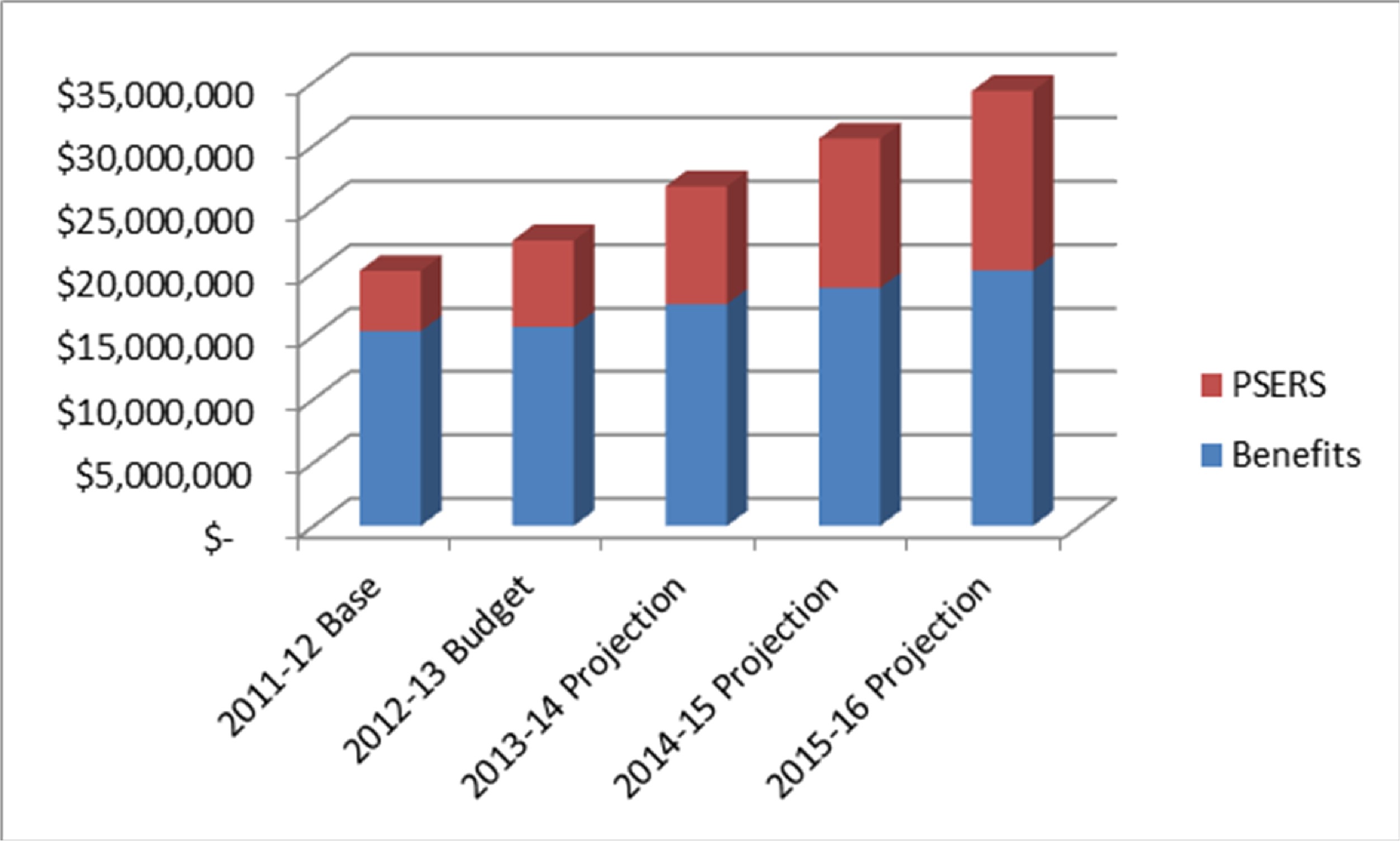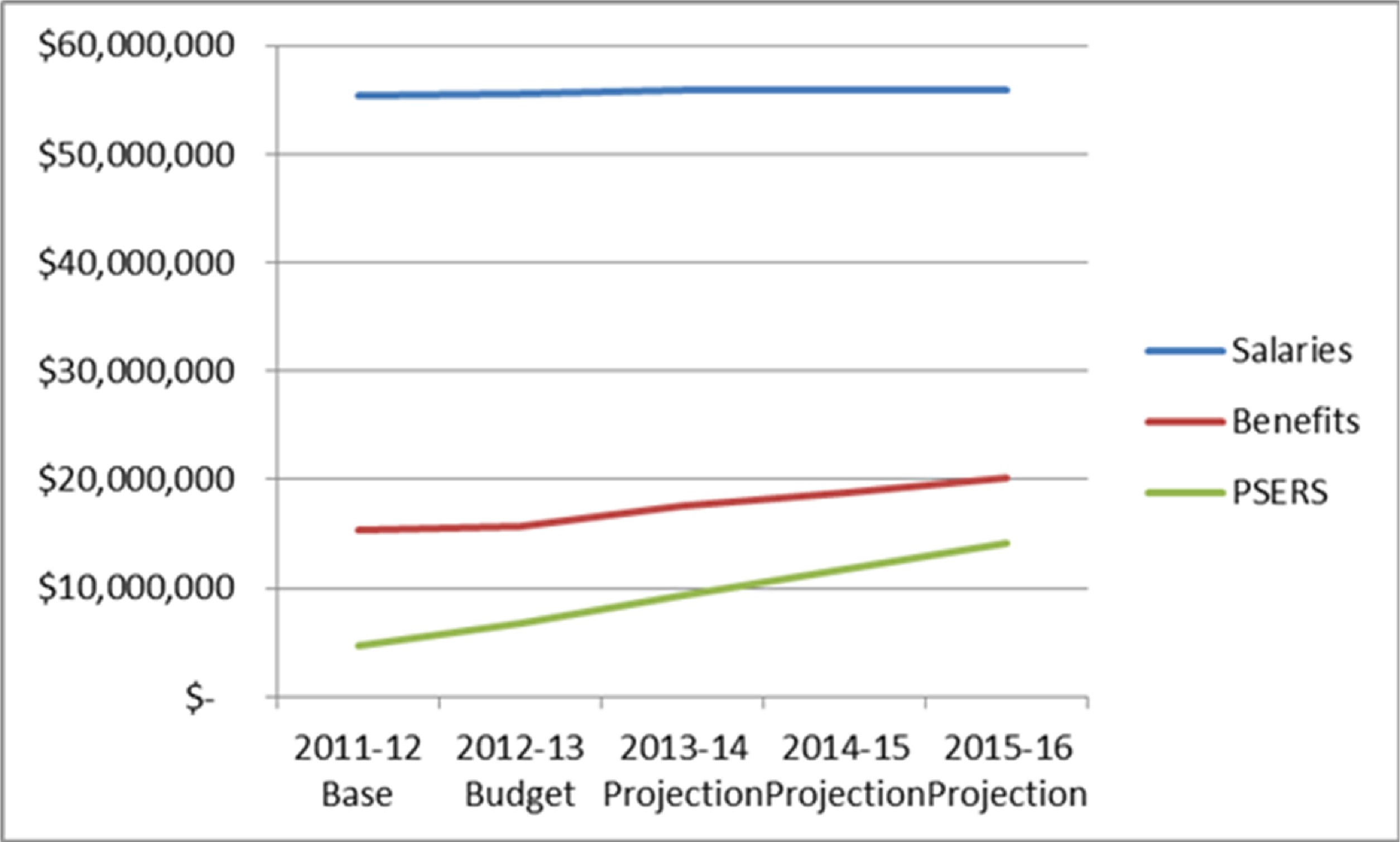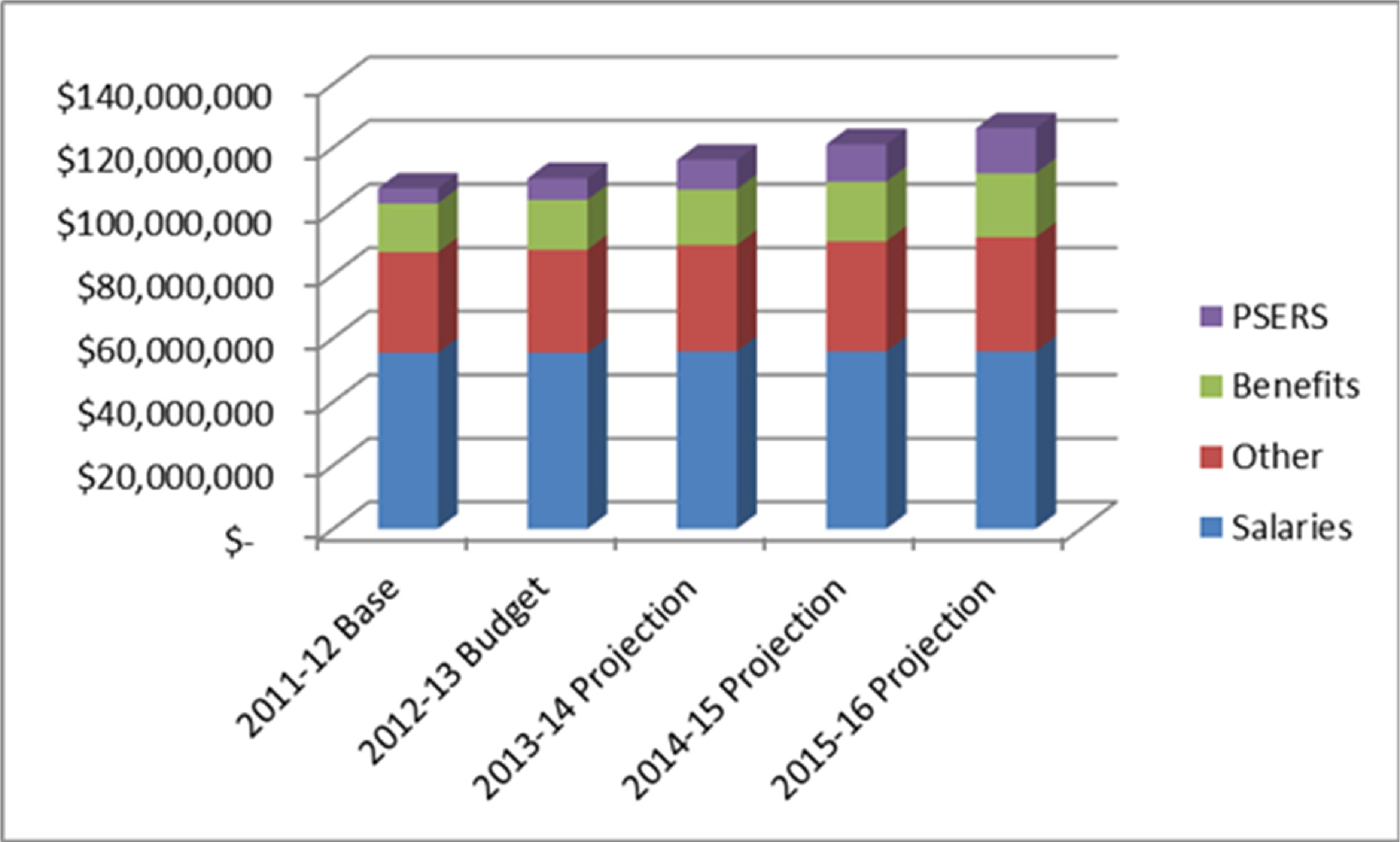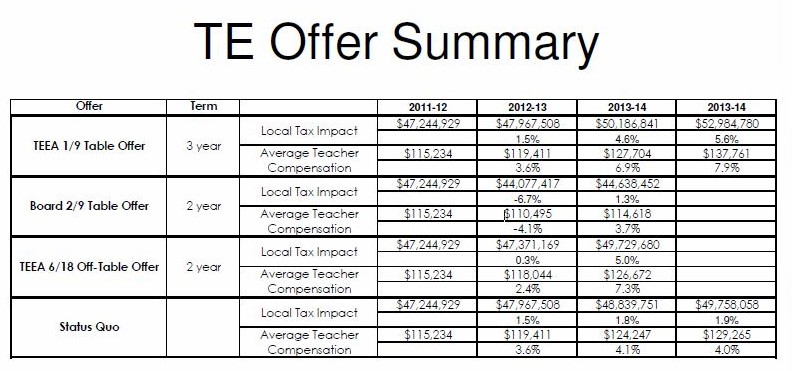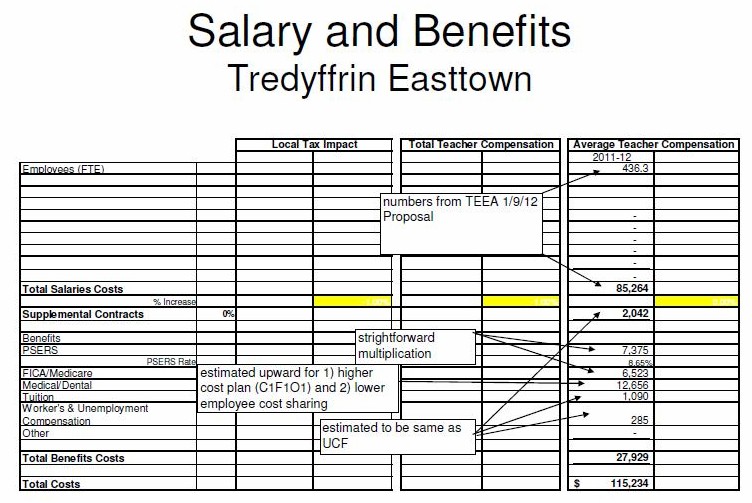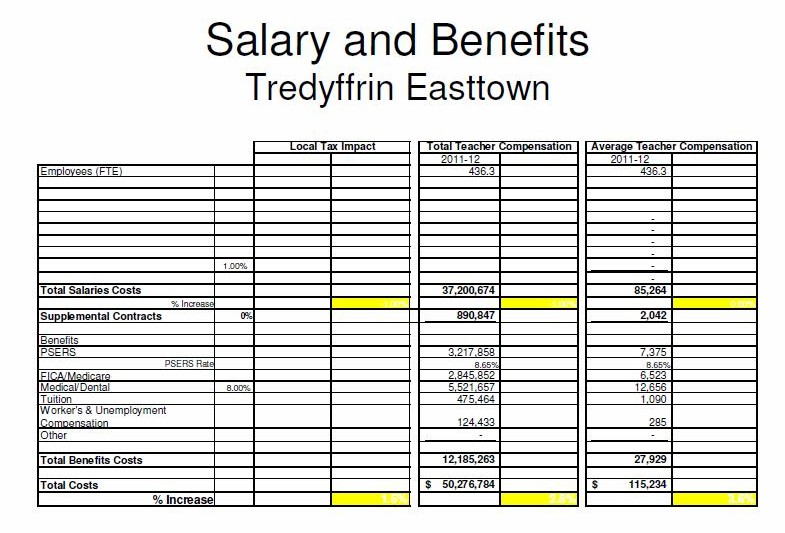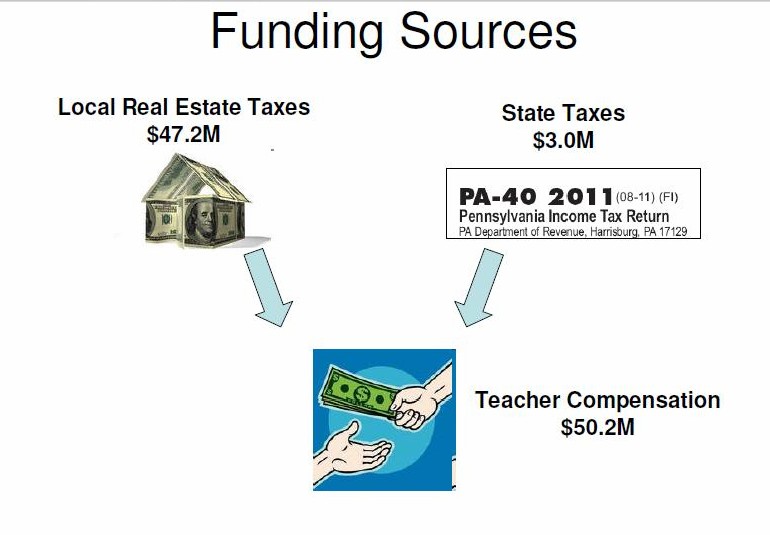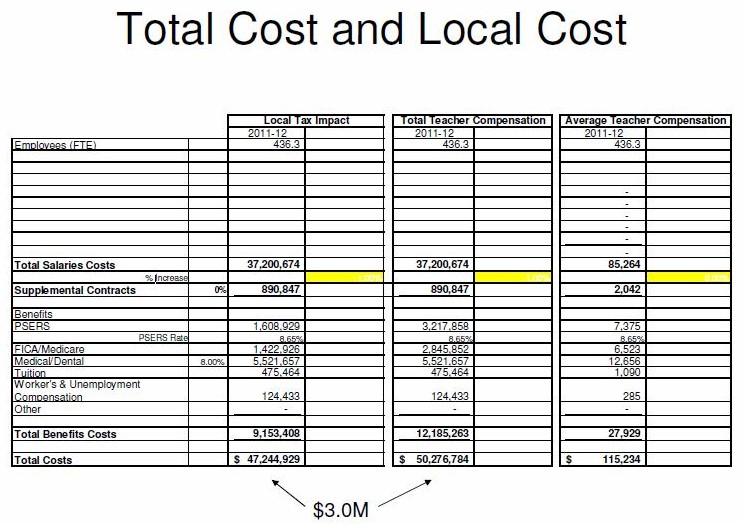The TESD held its regular monthly school board meeting last night. I was unable to attend but Ray Clarke attended and forwarded his notes from the meeting. There had been much speculation about whether or not the public would see the tentative agreement between the District and the teachers union, TEEA. The agreement was not available last night but the residents were told that TEEA will vote to ratify the agreement by October 11. Therefore, as a result the school board has scheduled a special school board meeting for October 15 at 7 PM, before the previously scheduled Finance Committee meeting, which has now moved to 7:30 PM.
Ray asked the board if the public would see the contract before the school board vote and they said it would be available at the meeting and the public would have a chance to comment before the vote. As Ray says in his notes, “We’ll have to do some speedy analysis in the allotted 30 minutes”. Ray’s questions to the school board were fielded by the solicitor, who offered “a lot of legalese about ‘labor relations case law’ and prejudicing the TEEA vote, while never explaining exactly how those factors would operate to adversely impact the district and its taxpayers”. I am pleased to know that school board member Rich Brake attempted a thoughtful explanation as to the rationale behind not providing the complete information at this point but with a commitment of a thorough explanation in the meeting before the vote.
However, Ray writes, “Kevin Buraks, on the other hand, used the recent property purchase as an example of the need for the secrecy, which of course proves my point rather than his! That draft contract [Old Lancaster Rd. property purchase] – negotiated privately directly between the parties, of course was made available to the public a full week-end before the ratification vote”. If you recall last month, I was surprised to see the property purchase of the house on Old Lancaster on the school board agenda. Its agreed that there had been much discussion over the years about that remaining property and the need to purchase it – just came as a surprise and a little unsettling how the property purchase was seemingly buried in the bottom of the agenda. The agreement of sale identified the property as 892 Old Lancaster Avenue, the seller as the Estate of Arthur Fennimore, and the price as $265K.
Ray’s noted the school board’s updated communications objectives for 2012-13 as including the communication of “milestones”, not substance. He reminds that it is this board of nine that “completely determines the budget, programs and taxes”. I was hopeful that the school district was moving forward in the direction of transparency but there certainly appears to be a sense of mystery surrounding the contents of the teachers’ agreement. My guess is that the school board believes in the ‘less is more’ approach when dealing with the public. Their theory appears to be the less that we [public] know, the less that we [public] can then question.
